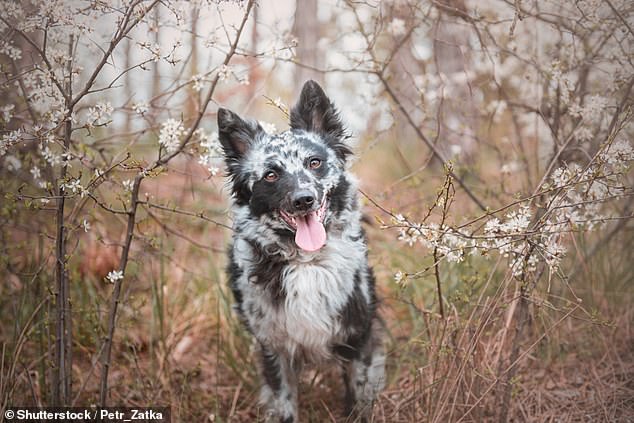[ad_1]
From goofy Golden Retrievers to cheeky Chow Chows, the UK is home to hundreds of different dog breeds.
Now, we’ve welcomed a new breed to the pack.
The Kennel Club has officially granted recognition to the Hungarian Mudi, making it the 225th breed in Britain.
Believed to have existed since around the 18th century, the Mudi was traditionally a hunting dog.
Today, it’s recognised for its distinctive curly or wavy coat, which comes in various colours – including a stunning salt-and-pepper.
‘We’re pleased to officially recognise this versatile Hungarian herding dog as a pedigree breed in the UK,’ said Charlotte McNamara, spokesperson for The Kennel Club.
‘Becoming a recognised pedigree breed with The Kennel Club takes time and several generations of dogs.
‘But once a breed is officially recognised, it means we can be confident in its lineage and that it offers predictable traits – like temperament, health, exercise and grooming needs – which helps match dogs with the right home and owner.’

The Kennel Club has officially granted recognition to the Hungarian Mudi, making it the 225th breed in Britain
References to Mudi-like dogs date back to the 18th century.
With impressive intelligence, agility, and versatility, the rare breed was traditionally a herding dog in its homeland, Hungary.
However, it wasn’t until 1936 that it was formally identified as a breed.
Dorit Powell, from The Hungarian Mudi Club in the UK, explained: ‘The Mudi is razor-sharp, thinks independently, and is an affectionate, fiercely loyal family member.
‘They are suitable for most types of living, as long as they are provided with a job or similar mental and physical stimulation, and their human companions can accept their breed-characteristic vocal and herding behaviour.’
The term ‘pedigree dog’ is used to refer to a dog within a breed that is recognised by The Kennel Club, and that has traceable ancestry going back several generations on both sides.
Pedigree dogs are predictable in terms of their temperament and physical appearance and their exercise, grooming and general care needs.
Because their ancestry is known, it is also possible to predict any health problems that might arise and to develop DNA tests for those conditions, which breeders can use before selecting their breeding dogs.

The breed is recognised for its distinctive curly or wavy coat, which comes in various colours – including a stunning salt-and-pepper
Now that it has officially been recognised by a breed here in the UK, the Mudi will be added to the Kennel Club’s Imported Breed Register.
This will provide the Kennel Club with time to produce and approve a breed standard, before the Mudi is eventually moved onto the main breed register.
The Mudi isn’t the only new breed to be recognised in Britain in recent years.
Earlier this year the Kennel Club granted recognition to the Icelandic Sheepdog, while the Polish Hunting Dog was recognised in 2024, the Smooth Faced Pyrenean Sheepdog in 2021 and the Barbet in 2020.
[ad_2]
This article was originally published by a www.dailymail.co.uk . Read the Original article here. .

